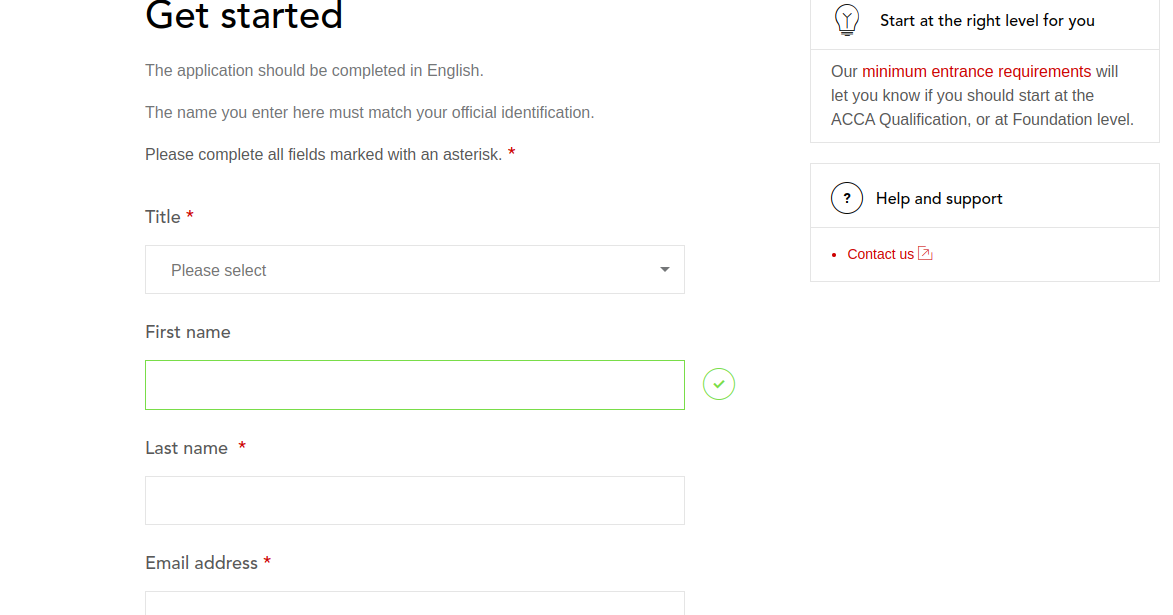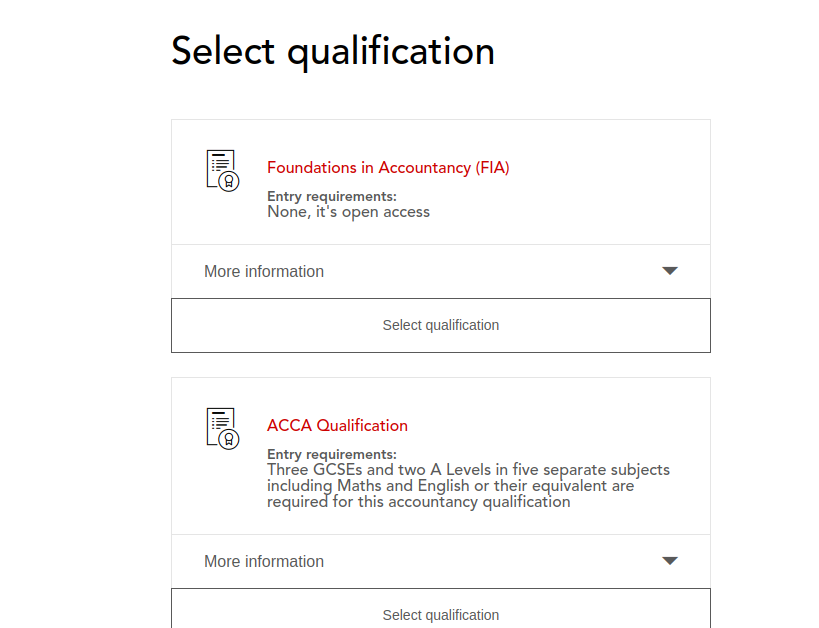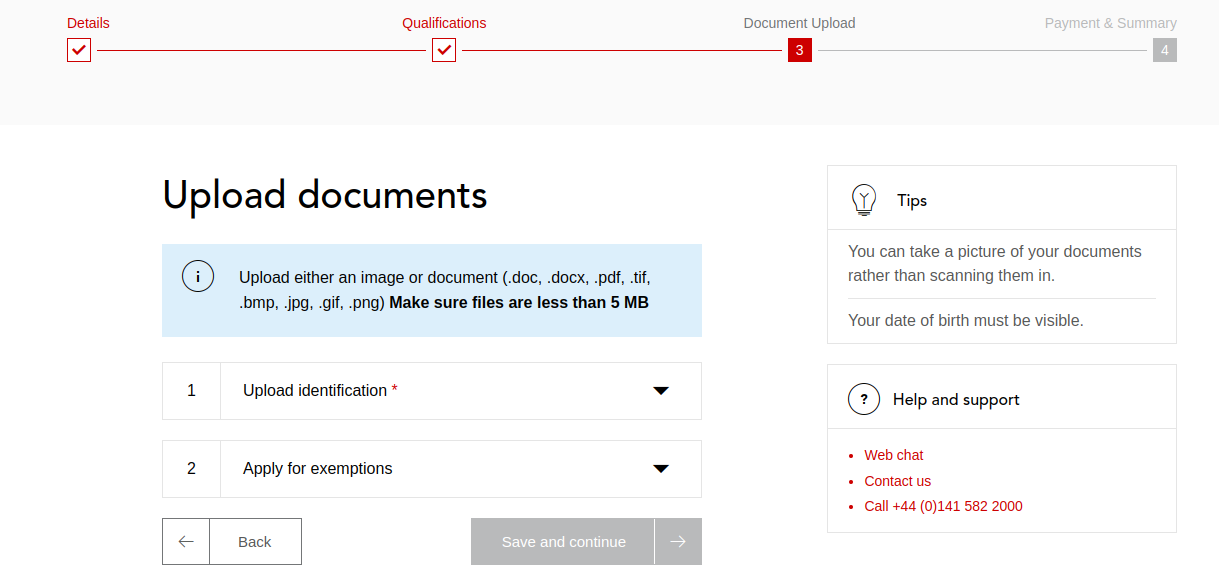ACCA Registration 2026 (Started) June Session - Fees, Eligibility, Documents
The Association of Chartered Certified Accountants (ACCA) has started the ACCA 2026 registration for the June 2026 session on February 3, 2026. Candidates who fulfill the eligibility criteria can fill out the registration form by visiting the official website - accaglobal.com. Thestandard exam entry deadline to complete the registration for ACCA 2026 is April 16, 2026. The ACCA registration fees are around Rs. 3,715 or £30. The ACCA 2026 exam for the June session will be conducted from June 1 to 5, 2026.
This Story also Contains
- ACCA Exam Dates India 2026
- ACCA eligibility criteria 2026
- ACCA exemptions
- Documents required to complete ACCA registration
- ACCA Registration Process 2026

The ACCA session-based exam takes place four times a year in the months of March, June, September and December for over five days in each session. Read the complete article to know more about ACCA registration 2026, ACCA registration requirements, ACCA exam dates and fees 2026 and other related information.
ACCA 2026 registration - Important dates
Candidates should check the important dates of ACCA 2026 in order to streamline their preparation.
ACCA Exam Dates India 2026
Event | March 2026 | June 2026 |
ACCA 2026 exam entry opening date | November 5, 2025 | February 3, 2026 |
Standard exam entry deadline | January 26, 2026 | April 16, 2026 |
| Late exam entry deadline | February 2, 2026 | No late entry this session |
Exam attendance dockets date | Third week of February 2026 | Third week of May 2026 |
Editing existing exam entry deadline date | January 26, 2026 | April 16, 2026 |
Request for additional support date | January 26, 2026 | April 16, 2026 |
Date of ACCA 2026 exam | Between March 2-6, 2026 | Between June1-5, 2026 |
Last date to register centre complaints | March 10, 2026 | June 9, 2026 |
Mitigating circumstances closing date | March 17, 2026 | June 16, 2026 |
Last date for exam withdrawals | March 18, 2026 | June 17, 2026 |
Declaration of exam results | April 11, 2026 | July 13, 2026 |
ACCA eligibility criteria 2026
Candidates should refer to the eligibility criteria of ACCA before filling the registration form. The basic eligibility criteria to pursue ACCA is mentioned below:
Candidates who have completed their class 10th can apply for ACCA course. However, they will be required to pursue a diploma course for ACCA foundation to apply for ACCA qualification which is the main ACCA certification exam
Candidates who have secured above 65% marks in accounts, english, and mathematics subjects can apply for ACCA course. Additionally, students should have more than 50% in the other subjects.
ACCA exemptions
Candidates can avail certain exemptions for various ACCA exams according to the mentioned criteria
Class 12 pass students will be exempted from the Foundational Diploma course of ACCA. A diploma in ACCA Foundation exam is for students who have no formal education.
B.Com or M.Com pass candidates will be exempted from ACCA knowledge level exams like Business & Technology (BT), Management Accounting (MA), and Financial Accounting (FA). Additionally, they will also be exempted from the corporate and business law exam of skill level exam.
Chartered Accountancy pass students will have nine papers exempted from a total of thirteen subjects. Skill Level and knowledge level exams will be completely exempted. CA pass candidates will have to give only the four exams at the Professional Level.
CA Inter pass students will have to sit only for eight exams in ACCA. Such candidates will be exempted from four exams which are Business & Technology, Management Accounting, Financial Accounting, Taxation, Audit and Assurance.
Documents required to complete ACCA registration
Candidates should keep the following documents handy before applying for ACCA 2026 registration.
Proof of any qualifications(marksheets, certificates)
Proof of identity (copy of birth certificate, passport, national id card or driving license)
Passport-style photograph.
ACCA Registration Process 2026
Candidates can complete the ACCA registration process in online mode. The following steps can be followed to register as ACCA student:
Online registration
Visit the official ACCA website - accaglobal.com
Register using the valid email ID credentials and personal details such as date of birth, address, nationality
Additionally, add a valid mobile number for future communication.

Qualification details
Candidates should select their qualification status for appearing in the ACCA exam.
There are two routes for entry one is Foundation in Accountancy (FIA) and the other is ACCA qualification.

Upload documents
Candidates are now required to upload identification documents such as copy of birth certificate, passport, national id card or driving license.
Candidates can also apply for exemptions by uploading their relevant certificates and marksheets.

ACCA registration fee payment
The final step is to pay the registration fee, candidates can pay the registration fee using credit card, debit card, PayPal and UnionPay options.
Once the payment is complete candidates will receive confirmation on their registered email id and password.
Save the application form and keep it safe for any future references.
After the application form submission, ACCA will confirm at which level the candidate will have to progress with their studies. If a candidate is unable to complete the application process in online mode, they can submit the application form in hard copy at the nearest ACCA office.
ACCA registration fees 2026
Particulars | ACCA fees in India (1GBP=123.87 Rs.) |
Initial Registration (A one-time fee that students must pay when registering with ACCA.) | £30 |
Re-registration (ACCA students who fail to pay fees when due will have their names removed from the ACCA register and must pay a re-registration fee (plus any unpaid fees) to be reinstated as a student.) | £30 |
Annual subscription (An annual subscription fee is due each year to keep your student status active) | £140 |
Exemption fees (Applied Knowledge exam) The fee is chargeable per exemption awarded. | £84 |
Exemption fees (Applied Skills exam) The fee is chargeable per exemption awarded. | £111 |
Knowledge Level | Rs. 28,000 (approx.) |
Skill Level (standard entry fee) | £147 |
Skill Level (late entry fee) | £376 |
Professional Level (Business Leader exam standard fees) | £260 |
Ethics and professional skills module | £81 |
Also check - ACCA Full Form
Frequently Asked Questions (FAQs)
The registration for ACCA June 2026 session commenced on February 3, 2026.
The initial registration fee for ACCA 2026 is £30 or around Rs. 3715.
The ACCA March exam will be conducted between March 2 to 6, 2026.
You can apply for ACCA in online mode by visiting the official website - accaglobal.com
The last date to register for the ACCA June 2025 session is April 16, 2026.
Yes, the candidates can register for ACCA exam anytime of the year, but there are cutoff dates for each session.
